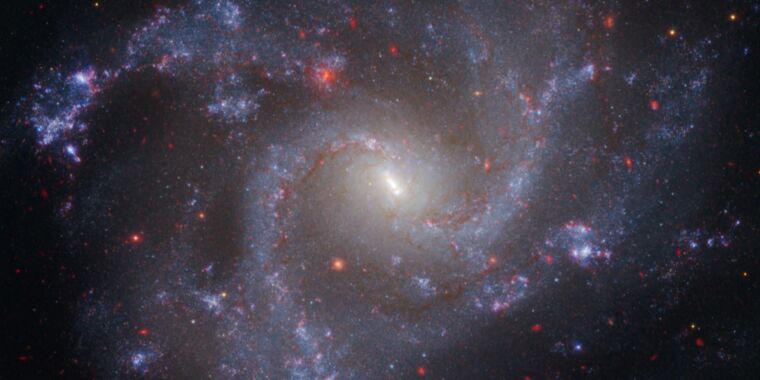Astronomers’ Measurements Confirm Expansion of the Universe
Astrophysicists have recently conducted a comprehensive study of the Hubble Constant, a crucial parameter that indicates the rate at which the Universe is expanding. By merging data from both the Hubble Space Telescope and the James Webb Space Telescope, researchers have arrived at valuable insights regarding the Universe’s growth trajectory. Their findings, detailed in a recent publication in The Astrophysical Journal Letters, affirm the accuracy of Hubble’s previous calculations concerning the constant’s value. This development bears particular significance due to its implications for the longstanding discord between diverse observational methods, commonly referred to as the “Hubble tension.”
A Historical Perspective on Cosmic Expansion
The prevailing view of a static Universe was revolutionized by Albert Einstein’s groundbreaking general theory of relativity. In 1922, Alexander Friedmann introduced a series of equations suggesting that the Universe might actually be in a state of expansion, a hypothesis later corroborated by Georges Lemaitre through independent calculations. Edwin Hubble’s observational data in 1929 validated this notion of universal expansion. Prior to this breakthrough, Einstein had attempted to modify his theory to accommodate a static universe by introducing a cosmological constant. Following Hubble’s landmark discovery, he famously acknowledged this endeavor as his most significant mistake in the field.
The Enigma of the Hubble Constant
The Hubble constant serves as a pivotal metric denoting the Universe’s expansion rate in kilometers per second per megaparsec. Put simply, it indicates the increase in distance, measured in kilometers, of a relatively stationary object situated one megaparsec away from Earth per second. However, discrepancies arise when determining the precise expansion rate, with different methods producing varied values. Notable approaches include inspecting the movement of nearby entities, studying gravitational waves generated by celestial events, and scrutinizing the Cosmic Microwave Background, a remnant of the Big Bang. For instance, observations of distant supernovae yield a value around 73 km/s Mpc, while Planck satellite readings suggest a value closer to 67 km/s Mpc.
Recent Advancements and Confirmations
Recently, researchers utilized a novel method involving a lensed supernova phenomenon to offer a distinct evaluation of the Universe’s expansion rate. This approach reinforced the Hubble Constant value derived from previous observations, albeit with slight variations well within acceptable margins of error. Subsequent assessments aligning with earlier supernova measurements exhibited improved compatibility with the collected dataset. While uncertainties persist regarding the validity of this new technique, it provides an autonomous avenue for determining the Hubble Constant.
By leveraging the combined capabilities of the Hubble and Webb telescopes, scientists have further verified the precision of Hubble’s expansion rate assessments. Extensive analyses of Cepheid variable stars in distant galaxies have effectively ruled out measurement errors, substantially allaying the prevailing Hubble Tension predicament. This consolidated effort not only reinforces the reliability of Hubble’s cosmic observations but also hints at potential misconceptions regarding the overarching cosmic narrative.
The published findings in The Astrophysical Journal Letters represent a notable advancement in astrophysical research, shedding light on the complex symphony of universal expansion with renewed clarity and precision.
Image/Photo credit: source url





